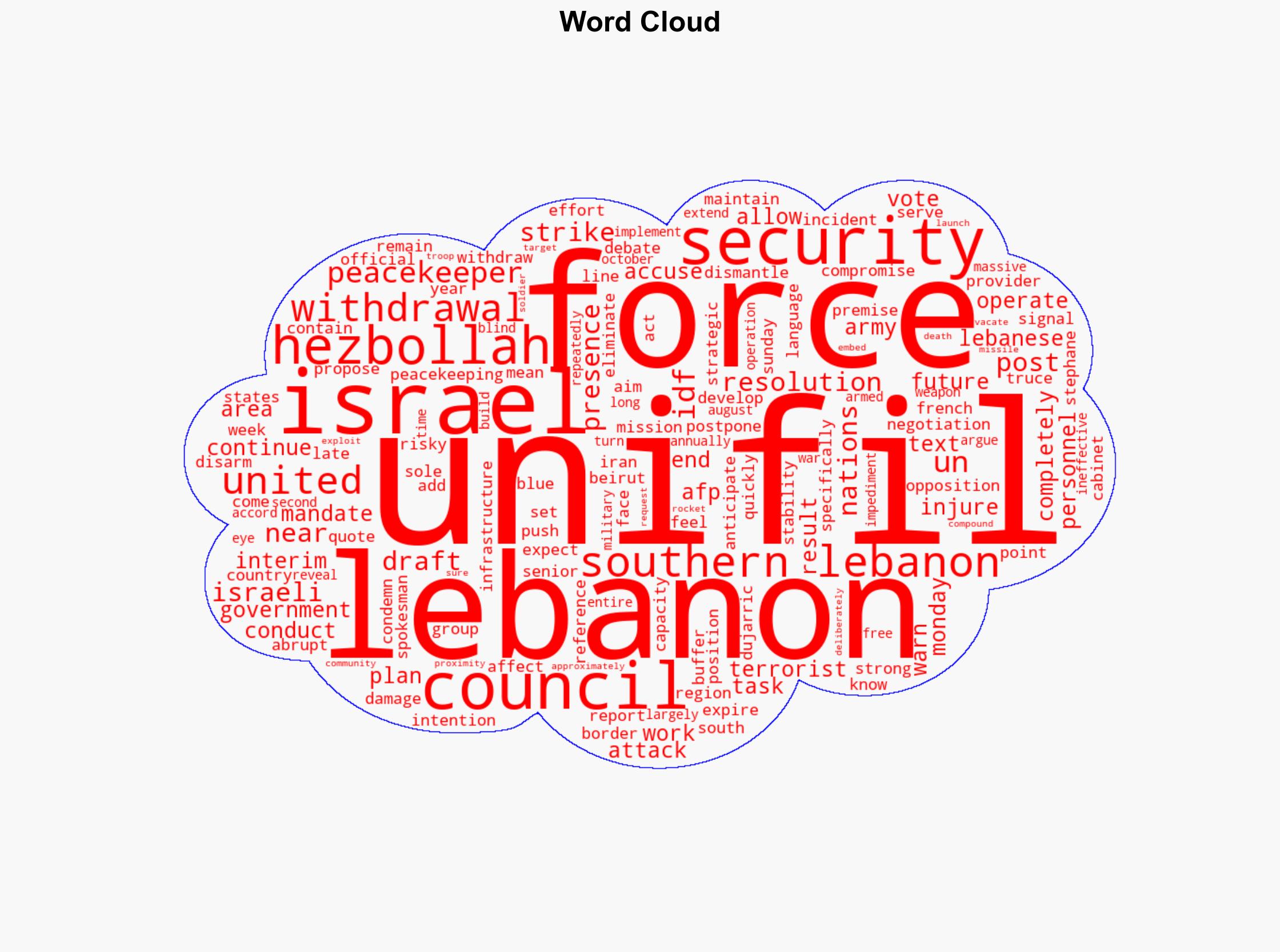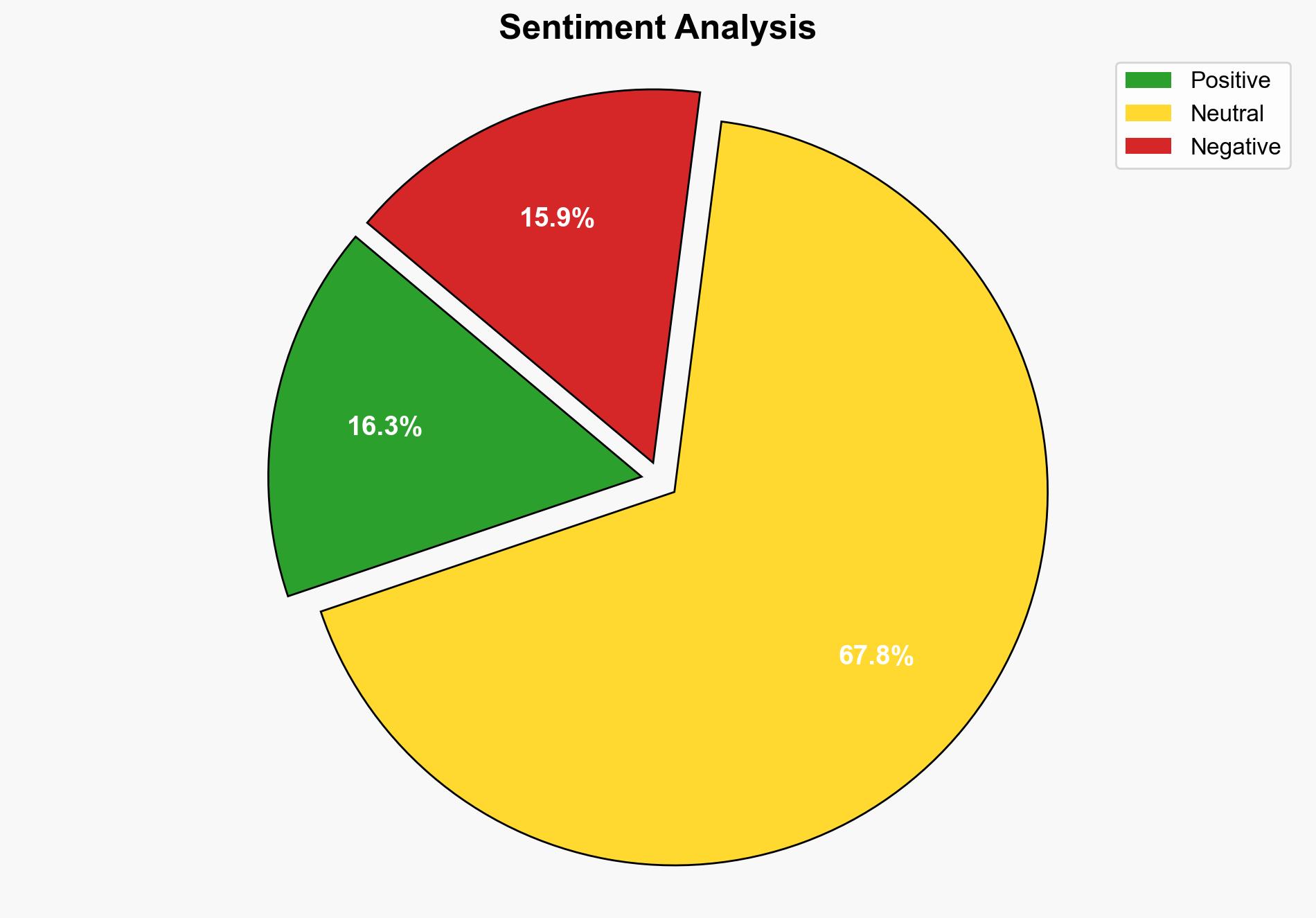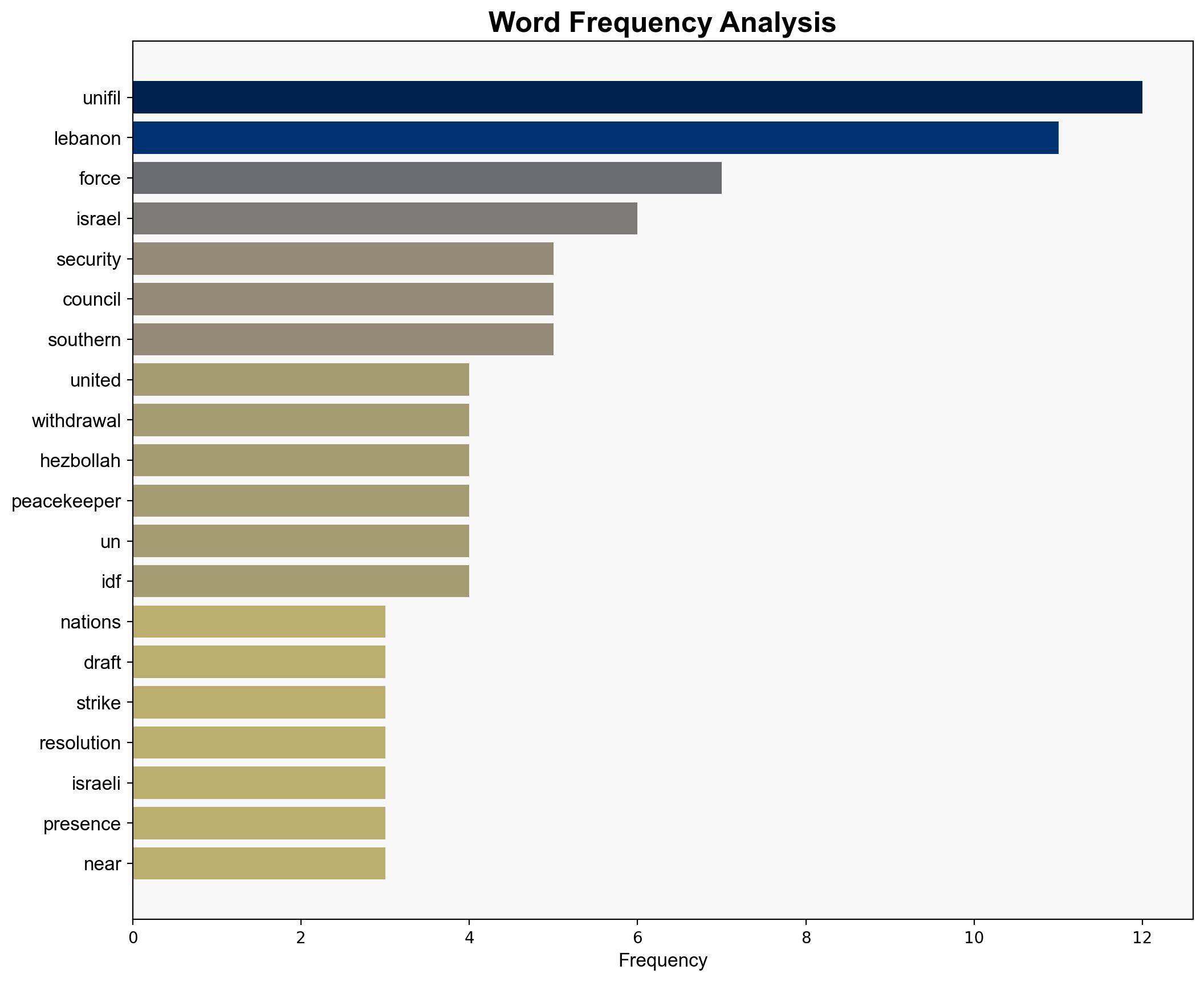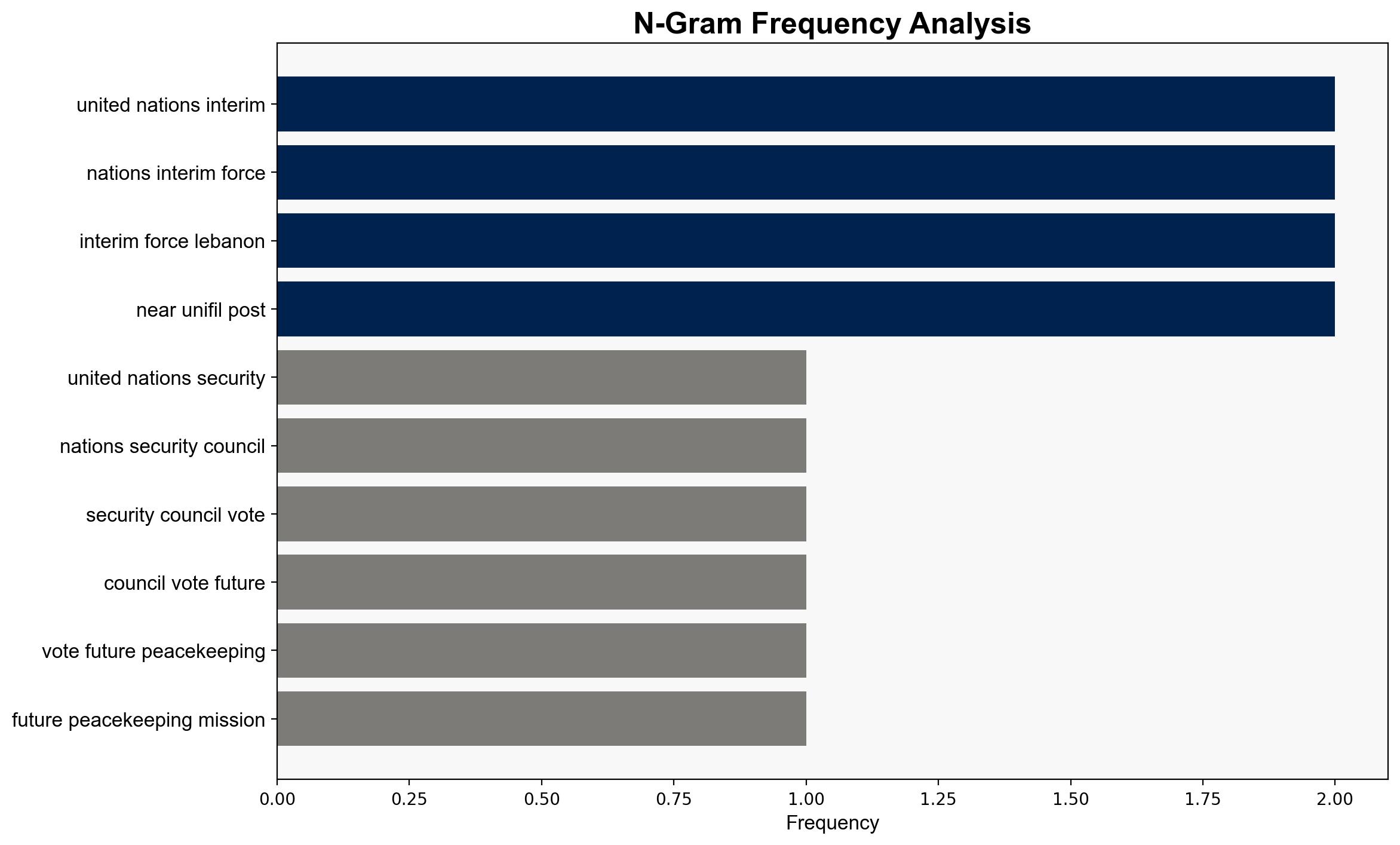UN vote on UNIFIL’s future delayed over Hezbollah-related opposition – Israelnationalnews.com
Published on: 2025-08-26
Intelligence Report: UN vote on UNIFIL’s future delayed over Hezbollah-related opposition – Israelnationalnews.com
1. BLUF (Bottom Line Up Front)
The delay in the UN Security Council vote on UNIFIL’s mandate reflects significant geopolitical tensions involving Hezbollah’s influence in Southern Lebanon and regional security dynamics. The most supported hypothesis is that the delay is primarily due to strategic disagreements between key stakeholders, particularly the United States, Israel, and France, over the handling of Hezbollah’s presence. Confidence Level: Moderate. Recommended action is to engage in diplomatic efforts to reconcile differences among stakeholders to ensure a stable resolution that addresses security concerns while maintaining regional stability.
2. Competing Hypotheses
1. **Hypothesis A**: The delay is primarily due to strategic disagreements between the United States, Israel, and France over the handling of Hezbollah’s presence in Southern Lebanon. This hypothesis is supported by the ongoing negotiations and the need for a compromise that balances the interests of maintaining a robust UNIFIL presence while addressing Israeli security concerns.
2. **Hypothesis B**: The delay is a tactical maneuver by Hezbollah and its allies to weaken UNIFIL’s mandate, thereby increasing Hezbollah’s operational freedom in Southern Lebanon. This hypothesis considers Hezbollah’s strategic interest in reducing international oversight and the potential influence of Iran in these negotiations.
3. Key Assumptions and Red Flags
– **Assumptions**:
– Hypothesis A assumes that key stakeholders are willing to negotiate and reach a compromise.
– Hypothesis B assumes Hezbollah has the leverage to influence UN decisions significantly.
– **Red Flags**:
– The absence of explicit statements from Hezbollah or Iran regarding their stance on UNIFIL’s mandate.
– Potential cognitive bias in underestimating Hezbollah’s influence on the Lebanese government.
4. Implications and Strategic Risks
– **Geopolitical Risks**: A weakened UNIFIL mandate could embolden Hezbollah, increasing the risk of military escalation with Israel.
– **Regional Stability**: Failure to renew a robust UNIFIL mandate may destabilize Southern Lebanon, impacting broader Middle Eastern security dynamics.
– **Diplomatic Relations**: Prolonged negotiations may strain relations between key UN Security Council members, affecting broader international cooperation.
5. Recommendations and Outlook
- Engage in multilateral diplomacy to facilitate a compromise that strengthens UNIFIL’s mandate while addressing Israeli security concerns.
- Monitor Hezbollah’s activities and rhetoric for signs of increased aggression or strategic shifts.
- Scenario Projections:
- Best Case: A renewed UNIFIL mandate with enhanced capabilities and international support.
- Worst Case: A significant reduction in UNIFIL’s mandate, leading to increased regional instability.
- Most Likely: A compromise is reached, maintaining UNIFIL’s presence with some adjustments to its mandate.
6. Key Individuals and Entities
– Hezbollah
– United Nations Security Council
– Israeli Defense Forces (IDF)
– UN Spokesman Stephane Dujarric
7. Thematic Tags
national security threats, regional focus, counter-terrorism, geopolitical dynamics




